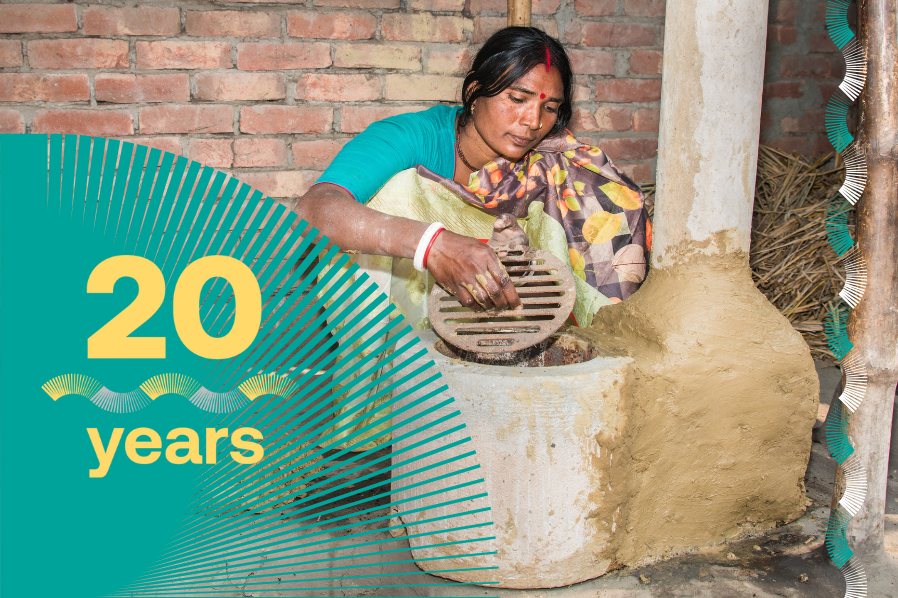
Bangladesh
How upskilling Santal women sparks lasting cultural shifts in clean cooking
What happens when new technology isn’t just introduced, but owned, shaped, and shared by the community itself? Among Bangladesh’s Santal communities, adopting improved cookstoves is more than a shift in tools – it’s a cultural transformation. By focusing on training women as local technicians, EnDev’s approach empowers women often excluded from technical roles to become leaders in clean cooking – turning a gender-inclusive strategy into a shared success.
Igniting adoption of improved cookstoves
It’s late afternoon in a small village in northwestern Bangladesh. The warm, earthy scent of freshly cut wood lingers in the air, but it’s noticeably less smoky than it used to be. In the courtyard of a modest Santal home, women are gathered around a low-built stove. Today, cooking is not just about preparing dinner – it’s a demonstration, conversation, and quiet revolution in the making.
Between 2023 and early 2025, over 3000 Santal people in Bangladesh transitioned to improved cookstoves, not through external campaigns but by EnDev leveraging women as community-based technicians. Additional project results are expected in 2025, so the true impact will be even higher. These women are trained to sell, install, maintain, and repair improved cookstoves, and have created a cultural shift in the perception of clean cooking. By showcasing the benefits, such as reduced smoke, lower fuel costs, and unchanged food taste, they built trust within their communities and became catalysts for lasting change.
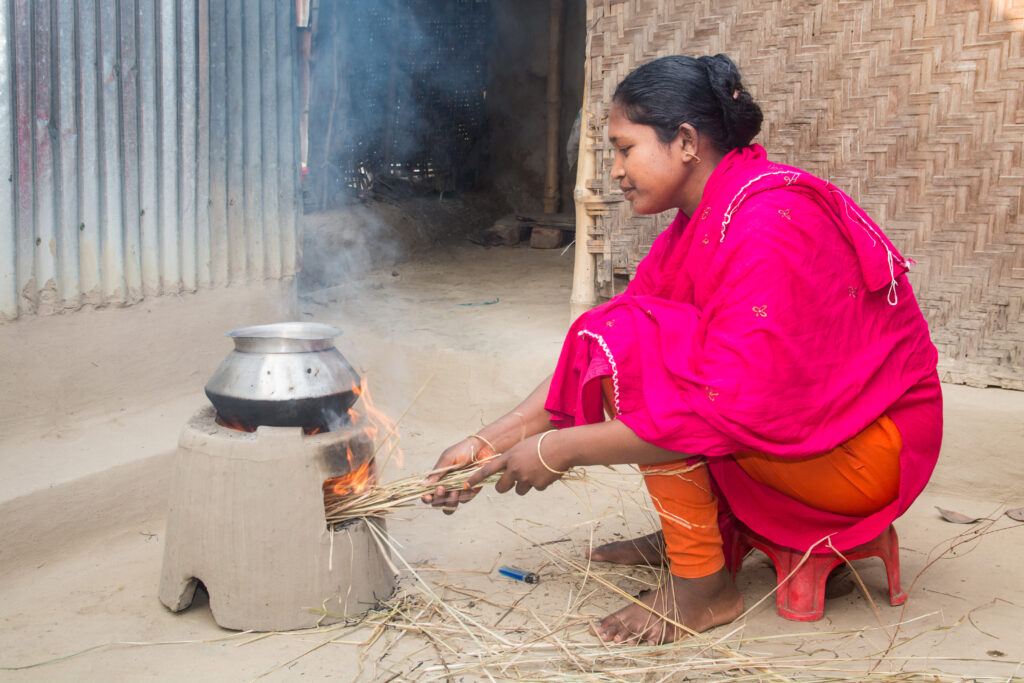
3,000
Santal people transitioned to improved cookstoves.
Clearing the smokescreen
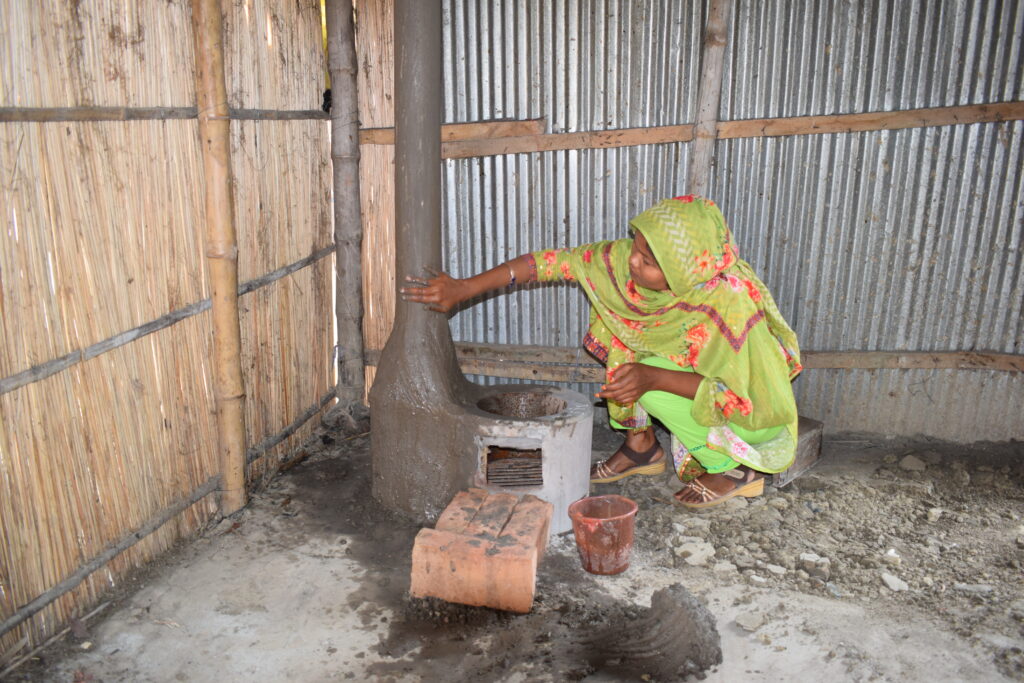
Facilitating the transition from traditional cookstoves to cleaner cooking is one of EnDev’s oldest projects in Bangladesh. Since pioneering the introduction of improved cookstoves in 2009, EnDev has enabled the emergence of a nationwide market and a scalable model for adoption. In 2023, EnDev leveraged these insights to address gender inequalities in Santal communities, the third-largest ethnic minority group in the country, by offering dedicated technical training to women.
EnDev partnered with AVA Development Society to implement the initiative. AVA Development Society manufactures improved cookstoves and benefits from a high level of trust earned through past community projects. Building on this trust, the project engaged local women as ‘technicians’ for theses stoves. Working on a commission basis, they act as sales and service agents – selling the stoves, installing them, and offering maintenance and repair services. AVA supports this by providing replacement parts outside of warranty at very low cost, which further encourages long-term adoption of the stoves.
Like many ethnic minority groups, Santal communities face systemic challenges such as limited access to education and restricted employment options, which result in lower incomes. Any work options that do exist are mostly available to men. By becoming ICS-‘technicians’, the women saw the opportunity to gain financial independence and improve their livelihoods and increase their employability.
However, introducing a new technology can come with challenges. Like most people in rural Bangladesh, the Santal communities mainly rely on biomass, like wood and charcoal, for energy. A traditional stove set-up is mud-made and supports a pot over an open flame, using 7–8 kilograms of costly biomass-based fuel every day. An improved cookstove burns biomass more efficiently, requiring half as much fuel while producing less smoke. But many believed their traditional stoves worked fine, and some people were concerned that food would taste differently if not cooked over an open fire.
People needed the new technology to prove itself before making the switch. To address this challenge, the initiative leveraged the influence of women as trusted community figures.
Clean cooking in Bangladesh in context
When EnDev started supporting adoption of improved cookstoves in June 2009, 98% of households in rural Bangladesh were cooking over an open fire, and only 47% of households had electricity access. Bangladesh’s government has prioritised rapid electrification, declaring 100% coverage in 2022. While data from 2023 shows that Bangladesh was able ro reduce the share of households using wood as the main fuel to almost 70%, electricity access remains unreliable in rural areas, so improved cookstoves remain the key tool for raising access to clean cooking.
Stoking success with trust, skills, and community roots
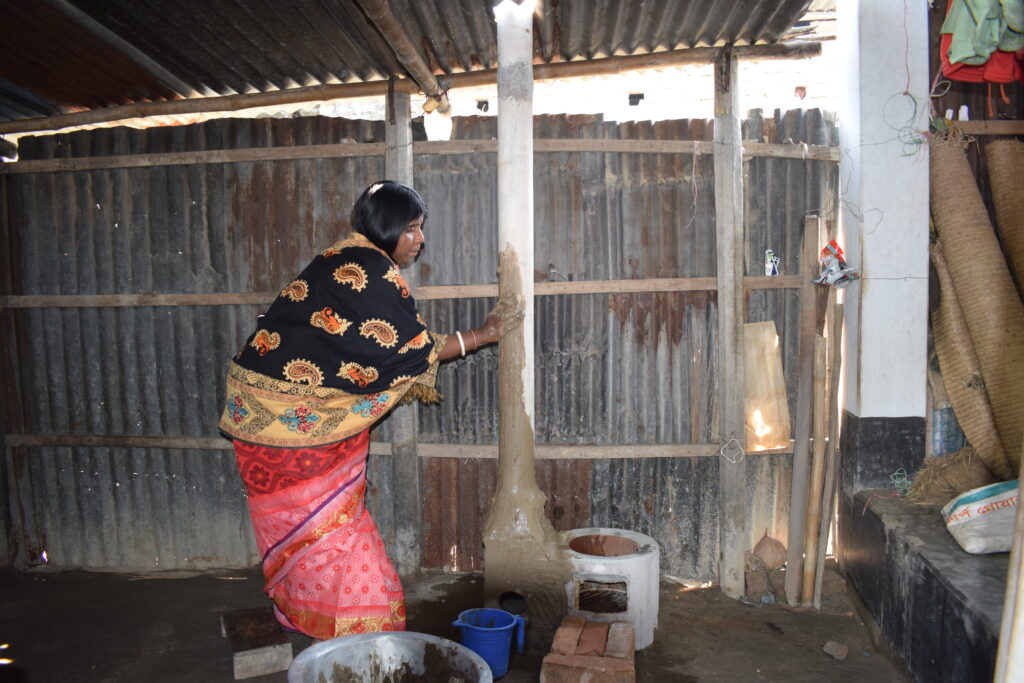
One key learning from EnDev’s experience in Bangladesh, which helped to build trust, is to hold learning events, meetings, and cooking demonstrations in homes and spaces within communities rather than external venues. These settings allowed people to comfortably learn about improved cookstoves, express their doubts, and share their experiences in their familiar environments.
The early adopters and trained technicians provided credible testimonials and personal insights on the everyday experience of cooking with an improved cookstove. Then, others who had not yet adopted could see successes firsthand from people they know. Another advantage: This peer support helped even more households in the community switch to improved cookstoves with confidence, knowing that women they know were trained to help with the installation, maintenance, and repair of the stove. Through this process, the technicians built trust and generate a culture of cleaner cooking within their communities.
To make people feel more connected, we need to go to their comfort zone, not asking them to come to us.
— EnDev Bangladesh project team member
Building cultures, not just markets
What started as a simple cooking demonstration in a Santal courtyard wasn’t just about supplying stoves – it was embedding a new practice into the social fabric of the community. It shows that clean cooking adoption is not only about access to technology – it’s about creating ownership, confidence, and cultural acceptance. By investing in the skills and leadership of women in the community, EnDev harnessed the power of community to foster a culture of clean cooking that continues to grow from within. The result is not just thousands of cleaner, healthier kitchens, but a model for inclusive, gender-responsive energy transitions
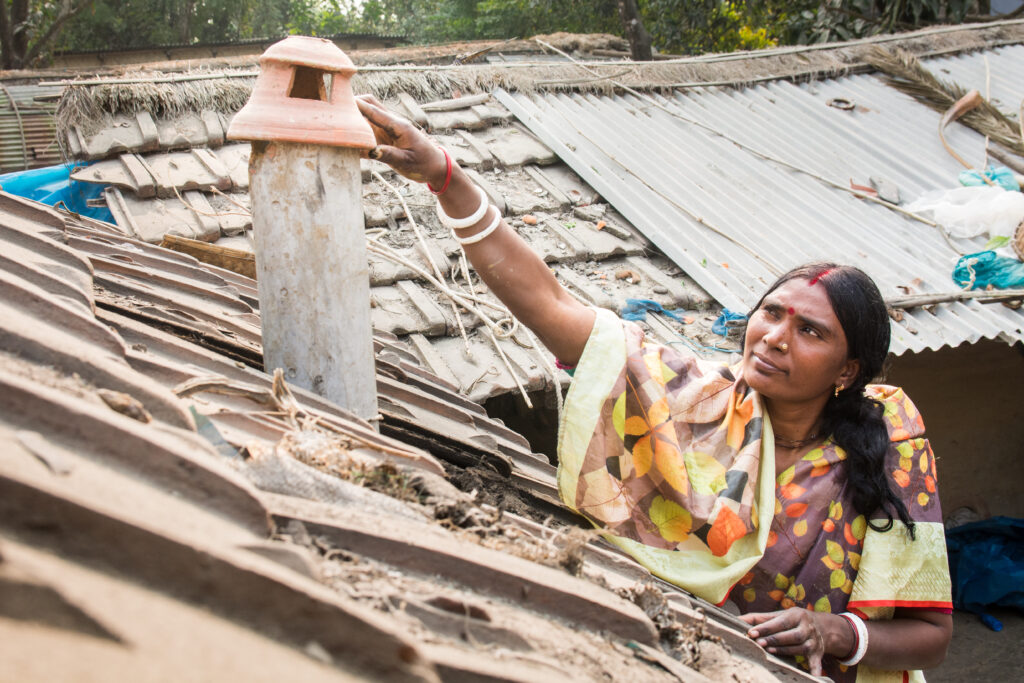
Key take-aways
Trust moves faster than technology
When designing a behavioural change programme, building community-centric approaches which harness women as trusted community figures fosters long-term adoption.
Bring change home
Consider where people might feel more connected and comfortable in learning something new – host meetings, workshops, and training in their community spaces rather than external settings.
Don’t build alone
Embrace opportunities to work with external partners who may already have a strong rapport with communities.